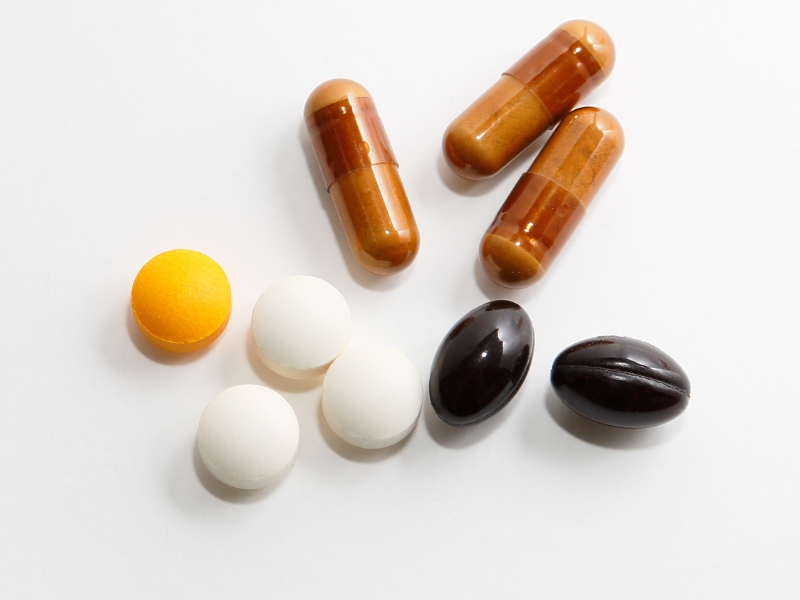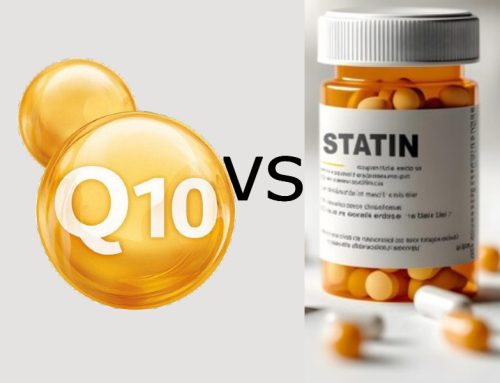
Certain regions of the world such as Sweden (pictured) and the other Scandinavian countries, the United Kingdom, New Zealand, and parts of China and the United States have selenium-poor soils and, thus, selenium-poor crops and foodstuffs. Without adequate selenium, the body cannot produce enough Coenzyme Q10 and cannot produce enough selenium containing antioxidant enzymes.
To date, Dr. Urban Alehagen and the Swedish researchers at Linköping University have published seven journal articles detailing various aspects of the heart health benefits of taking a daily combination of 200 micrograms of SelenoPrecise organic selenium supplements and 200 milligrams of Bio-Quinone Q10 (100 mg morning and evening). It should be interesting to summarize the research results reported in these articles.
What do we need selenium and Coenzyme Q10 for?
The human body uses the trace element selenium to make the selenoproteins that are needed for the proper functioning of many body processes. It uses selenium to make the antioxidant enzymes that protect the cells against harmful free radicals. There is increasing research evidence that selenium protects against the development of atherosclerosis and certain cancers.
Coenzyme Q10 in the body plays an essential role in several ways:
- Cellular energy production
- Antioxidant protection of the cells and lipoproteins
- Protection of the endothelial cells in blood vessels
Why do we need selenium and Coenzyme Q10 supplements?
We get nearly all of the selenium in our bodies from our food. How selenium-rich or selenium-poor our food is depends on where we live. Sweden and all of the Nordic countries and Finland and the United Kingdom are known to have selenium-poor soils. In the US, the Eastern coastal plain and the Pacific Northwest have selenium-poor soils. New Zealand also has selenium-poor soil. People in selenium-poor regions are at risk of getting too little selenium in their diets.
The human body does produce Coenzyme Q10, but the production begins to decline with increasing age once a person reaches his or her 20s. Furthermore, the taking of statin medications has been shown to inhibit the body’s production of Coenzyme Q10.
There is a special interrelationship between selenium and Coenzyme Q10 in the body. People with inadequate intakes of selenium are at risk of producing too little Coenzyme Q10 on their own. People need adequate amounts of Coenzyme Q10 for their cells to produce the selenium containing antioxidant enzymes.
What, briefly, was the KiSel-10 study?
KiSel-10 was a prospective randomized, double-blind, placebo-controlled clinical trial of supplementation of elderly Swedish citizens with organic selenium yeast tablets and Coenzyme Q10 capsules for a 48-month period.
What do the results of the KiSel-10 study show?
The first article about the KiSel-10 study reported statistically significant results [1]:
- A reduction in cardiovascular deaths
- A reduction in the levels of a bio-marker for heart disease
- Better cardiac function scores on echocardiograms
In the second article about the KiSel-10 study, the Swedish researchers reported on the results of dividing the data into quintiles [6]. Quintile 1 contained the data associated with the lowest level of cardiac wall stress, quintiles 2 through 4 contained the data associated with moderate levels of cardiac wall stress, and quintile 5 contained the data associated with the highest level of cardiac wall stress.
The researchers found that the effectiveness of the combined SelenoPrecise and Bio-Quinone Q10 treatment varied according to how severe the cardiac wall tension was. Long-term combination supplementation was most effective in helping those elderly study participants who were in early to middle stages of developing cardiac dysfunction (quintiles 2 – 4). The researchers speculated that the major beneficial effect of the combined supplementation came from the antioxidant functions of the selenium containing enzymes and the Coenzyme Q10 in its reduced form.
Follow-up articles about the effects of selenium and Coenzyme Q10 supplementation
In subsequent articles generated from analysis of the KiSel-10 study data, the researchers reported significant findings as follows:
- Analysis of two bio-markers for inflammation and atherosclerosis showed significantly better outcomes in the treatment group that received the combination selenium and Coenzyme Q10 supplements than in the placebo group [2].
- Analysis of matched data from the study showed that patients in the active treatment group who received SelenoPrecise and Bio-Quinone Q10 daily for four years had more days out of the hospital and a slower deterioration of health-related quality of life [7].
- Further analysis of the data showed that there was less increase over the 48-month period in the blood levels of the two biological markers of oxidative stress in the active treatment group than in the placebo group [3].
- Follow-up analysis of the data extending to ten years beyond the start of the four-year combined supplementation showed that there were significantly lower cardiovascular mortality rates in the selenium and Coenzyme Q10 treatment group during the follow-up period [4]. The combined selenium and Coenzyme Q10 treatment showed positive risk reductions in both genders, in different NYHA functional classes, and in participants who developed ischemic heart disease (reduced blood flow and reduced oxygen to the heart). The protection against heart disease was not limited to the four years in which the KiSel-10 study participants were receiving the supplements but persisted through the follow-up period.
Summing up the KiSel-10 results from a clinician’s point of view
Dr. Urban Alehagen and Dr. Jan Aaseth looked at the results of the KiSel-10 study and summed up the study’s relevance to medical doctors in clinical settings [5]. They focused in on the evidence that Coenzyme Q10 (in its reduced form) is an important antioxidant and that selenium is an essential component of important antioxidant enzymes.
Antioxidant protection is especially important in the prevention of heart disease because the mitochondrial DNA in the heart muscle cells are especially susceptible to damage caused by oxidative stress (oxidative stress = an imbalance between the body’s production of harmful free radicals and the body’s ability to neutralize said free radicals).
Special interrelationship between selenium and Coenzyme Q10
The KiSel-10 study shows that there is an interrelationship between selenium and Coenzyme Q10 that can be exploited for therapeutic advantage if both substances are used together as a preventive measure for middle-aged and elderly persons at risk for developing heart disease.
Same Coenzyme Q10 preparation in KiSel-10 and Q-Symbio studies
The Q-Symbio study, published in 2014, has shown that the adjunctive treatment of heart failure patients with 300 milligrams of Coenzyme Q10 daily significantly improves symptoms and survival [8]. The same Coenzyme Q10 preparation was used in both studies: KiSel-10 and Q-Symbio.
Sources:
- Alehagen, U., Johansson, P., Björnstedt, M., Rosén, A., & Dahlström, U. (2013). Cardiovascular mortality and N-terminal-proBNP reduced after combined selenium and coenzyme Q10 supplementation: a 5-year prospective randomized double-blind placebo-controlled trial among elderly Swedish citizens. International Journal of Cardiology, 167(5), 1860-1866.
- Alehagen, U., Lindahl, T. L., Aaseth, J., Svensson, E., & Johansson, P. (2015). Levels of sP-selectin and hs-CRP decrease with dietary intervention with selenium and Coenzyme Q10 combined: A Secondary analysis of a randomized clinical trial. Plos ONE, 10(9), 1-16.
- Alehagen, U., Aaseth, J., & Johansson, P. (2015). Less increase of copeptin and MR-proADM due to intervention with selenium and coenzyme Q10 combined: Results from a 4-year prospective randomized double-blind placebo-controlled trial among elderly Swedish citizens. Biofactors (Oxford, England), 41(6), 443-452.
- Alehagen, U., Aaseth, J., & Johansson, P. (2015). Reduced Cardiovascular Mortality 10 Years after Supplementation with Selenium and Coenzyme Q10 for Four Years: Follow-Up Results of a Prospective Randomized Double-Blind Placebo-Controlled Trial in Elderly Citizens. Plos One, 10(12), e0141641.
- Alehagen, U., & Aaseth, J. (2015). Selenium and coenzyme Q10 interrelationship in cardiovascular diseases–A clinician’s point of view. Journal of Trace Elements in Medicine and Biology, 31157-162.
- Johansson, P., Dahlström, Ö., Dahlström, U., & Alehagen, U. (2013). Effect of selenium and Q10 on the cardiac biomarker NT-proBNP. Scandinavian Cardiovascular Journal: SCJ, 47(5), 281-288.
- Johansson, P., Dahlström, Ö., Dahlström, U., & Alehagen, U. (2015). Improved health-related quality of life, and more days out of hospital with supplementation with selenium and Coenzyme Q10 combined. Results from a double blind, placebo-controlled prospective study. The Journal of Nutrition, Health & Aging, 19(9), 870-877.
- Mortensen, S. A., Rosenfeldt, F., Kumar, A., Dolliner, P., Filipiak, K. J., Pella, D., & … Littarru, G. P. (2014). The effect of coenzyme Q10 on morbidity and mortality in chronic heart failure: results from Q-SYMBIO: a randomized double-blind trial. JACC. Heart Failure, 2(6), 641-649.








[…] healthy elderly citizens, aged 70-88 years, in the KiSel-10 study experienced a 53% relative reduction in the risk of death […]